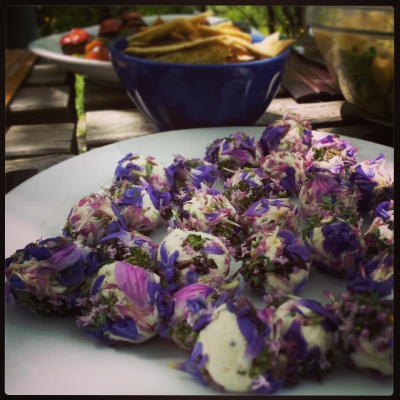 Edible flowers
Edible flowers A bunch of flavours
Begonia, pansies, nasturtium, etc., these flowers that decorate any garden can turn into a surprising bunch of flavours and colours in our plates. They open creative routes for bold cooks.
50 shades of boldness
The modern cooks understood it well: edible flowers offer an original and beautiful range of tastes. Floral cooking requires a botanic knowledge that could have been lost without this new surge of interest. Many great chefs now require a "picker" in charge of offering various flowers, just as a market gardener offers vegetables.
In France, the Savoy chef Marc Veyrat is a pioneer of this wild cuisine. The "Chef with the hat", as he is nicknamed, knows how to prepare lavender in pudding, to turn acacia flowers into an ice-cream or to cook everlasting flowers, his flower of choice, by pairing them with angler fish.
A vintage trend
Eating flowers is no new thing. Up to the Renaissance, flowers were part of the French everyday table. During World War I, our ancestors used to eat tulip bulbs. Our plentiful consumerist culture put an end to this feeding practice, but a few habits remains.
In Southern France, zucchini flowers are still used; in Brittany, we eat dandelion. We eat flowers without even realizing it: did you know that cauliflowers are underdeveloped inflorescence? And the gallons of beer drunk everyday throughout the world are the produce of the fermentation of the hop flower.
From the flower pot to the saucepan
Flowers are not only used by chefs. These products are now sold in supermarkets. You can also grow them in pots or in your garden. Whether you are countryman or a city dweller, a "cordon bleu" or an apprentice cook, it's easy to flavour your recipes with a floral tone.
Nasturtiums give a pepper flavour to your salads. With a citrus aroma, the mimosa flower adds a pinch of freshness to a fruit-shake. Lilac goes perfectly on a simple toast with butter. Roses adds subtle flavours to a raspberry jam.
Feel free to experiment: there are over a hundred edible flowers. That's enough to add a spirit of wildness to your cuisine!
Photo credits: L’ImaGiraphe